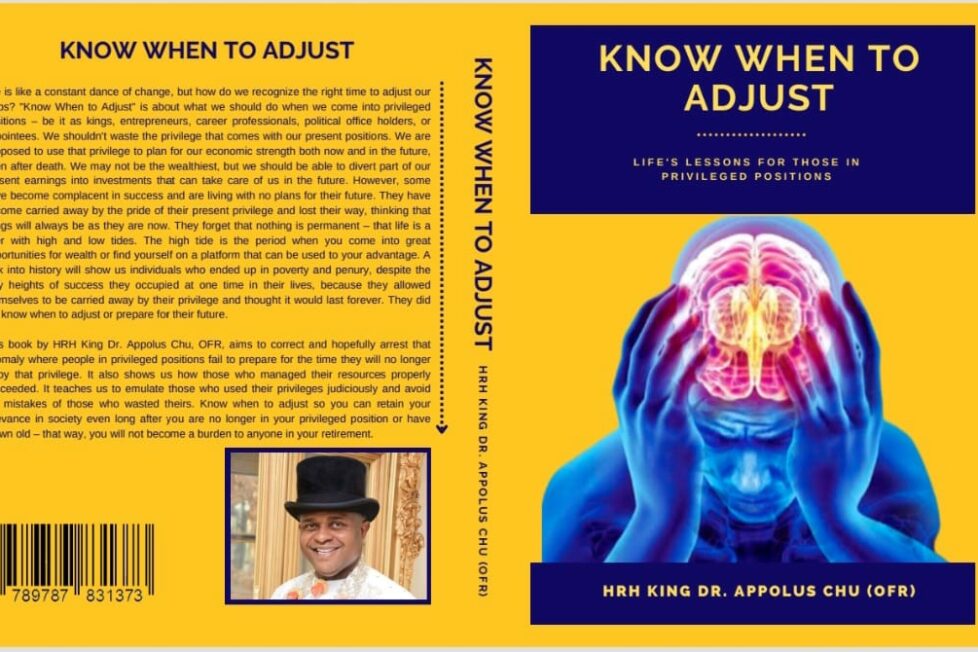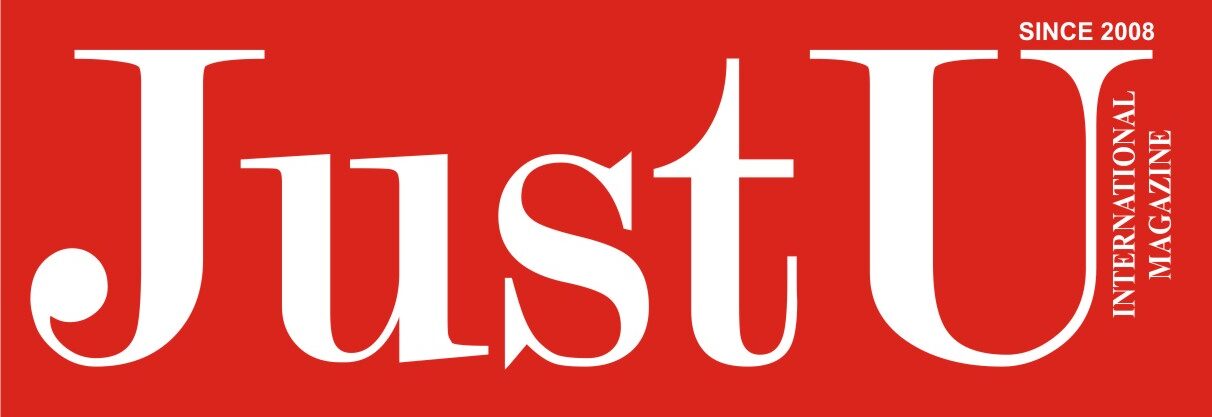Excerpts from the book, Know When to Adjust by HRH King Appolus Chu, OFR – Coming soon…


In human endeavours, worldwide, the corridors of power and privilege often house individuals whose influence seems unstoppable. These are the giants of business, career, politics, and society, akin to the legendary Goliath, whose huge stature makes them appear invincible. However, history and the archives of human achievement tell a different story — it is not just about being strong, but about knowing when to make changes.

The Biblical story of David and Goliath teaches a clear lesson of what can happen to a person who fails to adjust to changing situations. Goliath allowed himself to be consumed by his fame and praise from men as being a strong man, a notable warrior and a giant. With that, he felt he was indomitable and did not even consider the possibility of being upstaged by the young lad, David. He failed to consider the fact that no two battles are alike and that it isn’t every battle that a warrior wins – hence the saying, ‘he who fights and runs away, lives to fight another day.’ Had he considered the possibility of defeat, he would have avoided that fight, and by so doing retained his glory. But he went ahead with the battle because he undermined David.
Sadly, we see this same scenario played out daily in every sphere of life. There are those who have grown so big that the mere mention of their names instills fear in the minds of people. They carry themselves like Goliath, thinking they cannot be defeated or dethroned. With that mentality, they fail to adjust to changes and assume that they will continue to have their way and be victorious in the face of every challenge. More often than not, the things or people that eventually topple them are usually very insignificant things or persons inspired by nature to be their Waterloo.
The American boxer, Mike Tyson, holds the record of being the youngest heavyweight boxing champion in the world. In his prime, he was such an unstoppable fighter that they nicknamed him “Iron mike.” Sadly, he believed the hype. He thought all he needed to do was show up in the ring and he would knock out any opponent. Meanwhile, his opponents were busy studying his fights and making adjustments to their own fighting styles so they could better contend with him. In the end, the once invincible Iron Mike Tyson lost to opponent after opponent until he decided to retire from boxing.
In recent history, the name Nelson Mandela has become synonymous with perseverance and self-sacrifice. After spending nearly thirty years in prison, championing the cause of equality for all South Africans, Mandela emerged from prison to become the first truly democratically elected president of South Africa in the country’s first all-inclusive election. After his first tenure in office and despite the clamor from his supporters for him to continue for a second term in office, he quietly stepped aside from government and relinquished power to others. Mandela knew to adjust at the time when ovation for him was the loudest. He chose integrity and a sustainable profile over holding on to political power. By so doing, he transcended South African politics and became a global statesman. It is on record that before his death, world leaders and the United Nations consulted him on global issues; because they came to regard him as a truly selfless leader who would always address issues fairly. If not for Mandela’s ability to read the signs and adjust accordingly, he would have lost all that glory. Africa is filled with examples of heads of states that were initially loved by their people, but they held on too tightly to power. In the end they became hated enemies of the same people that sang their praises in the first instance. Some even died shameful deaths, because they failed to adjust when it became necessary for them to do so.
Here in Nigeria, the former President Goodluck Ebele Jonathan is another good example of a political leader who understood the importance of making appropriate adjustment. In the aftermath of the 2015 Presidential Elections, he would have used the power of incumbency to remain in office. But he willingly gave up power and congratulated his main rival, General Muhammadu Buhari, as the winner of the elections. Nearly a decade since President Jonathan left office, he is still being celebrated both at home and abroad as perhaps Nigeria’s best president. One hundred years from now, he will still be remembered by generations of Nigerians yet unborn for that singular act.
Knowing when to adjust speaks to our awareness of the fact that we will not always be in power. We will not always occupy that privileged position. We will not always be strong, healthy or wealthy. We will not always have whatever advantage of nature that we have today. With that awareness in mind, we need to plan for the time when our condition or situation might be adverse. We do so by observing the environment whether it is still advantageous to us or not, so that we know when to adjust.
This book therefore serves as a compelling guide for those at the helms of power, privilege, and influence. It emphasizes the critical need for humility, the wisdom to recognize one’s weakness, and the art of timely adjustment. It uses simple stories to explore this important truth: adjusting is the key to lasting success.
Know When to Adjust is a call to those in positions of authority and privilege, urging them to let go of arrogance and stubbornness and to embrace the virtue of humility. As it is not the strongest who lasts the longest, but those who, like flexible reeds in the wind, can bend gracefully when things change.
